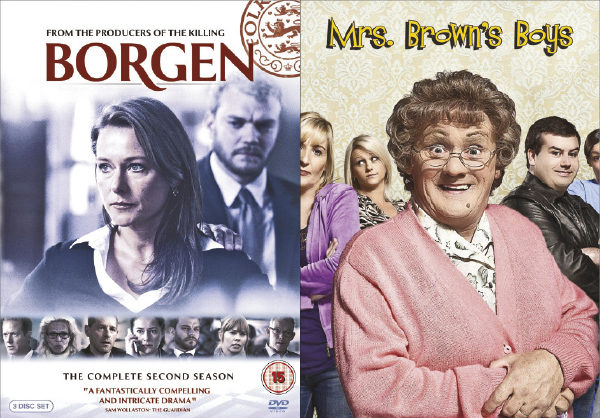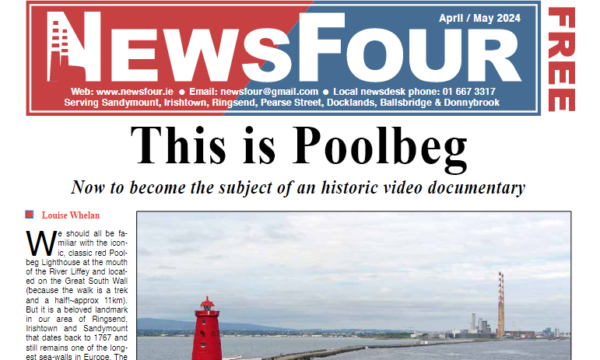
Images courtesy of Wikipedia
David Prendeville
RTÉ have released their annual report for 2018 and it paints quite a bleak picture. Last year saw the launch of RTÉ’s five-year strategy from 2018 to 2022.
This plan reflected the need for RTÉ to evolve in an age of changing technologies and the changing means of consumption of televisual content. This strategy was backed by the Broadcasting Authority of Ireland, which recommended that RTÉ receive an increase of at least 30 million per annum moving forward.
The Director-General of RTÉ, Dee Forbes, in her review in the 2018 report, emphasises that against this backdrop RTÉ recorded a loss of €13 million in 2018. This is despite cutting costs once more. Forbes goes on to suggest a need to reform the licence fee as one method of averting what is currently an unsustainable situation.
The perceived problem of the licence fee is further elaborated on in the financial report section. Here, the evasion figures of 14% and higher collection costs than the UK are highlighted. Naturally, another concern to which attention is drawn in the financial report, is the fact that many households are now consuming home entertainment in new ways, beyond the television. This figure now stands at 10.6%.
This leads on to their argument that, as per some other countries, the model of license fee should be changed and should move beyond being device dependent.
This is obviously a very contentious issue for members of the public. It’s understandably frustrating that somebody who watches all their shows on Netflix or some other streaming platforms, and has no reliance on RTÉ, should be charged to keep the station afloat. However, on the other hand it is absolutely imperative that we have a national broadcaster for obvious democratic and cultural reasons.
To justify bringing in a universal media charge, then, quite simply means that higher standards must be set across all aspects of the station’s output. The fact that the report boasts of RTÉ’s factual shows such as At Your Service, Operation Transformation, Daniel and Majella’s B & B Roadtrip, Don’t Tell the Bride and Say Yes to Dress tells its own sad story about what RTÉ considers quality, ‘factual’ programming.
The question for RTÉ is really one of trust and reform. I have written extensively on the issues facing the FAI recently and really it’s hard not to think the same issues apply to RTÉ. I believe the vast majority of people, even those who do not own a television, would have no problem paying a media fee if the standard of programming on RTÉ was higher. The area of home-grown drama is particularly contentious.
If one thinks back on the last decade, only Love/Hate could be considered a bona fide success. That simply isn’t good enough. This has been reflected in a statement in which the Screen Directors Guild of Ireland, which includes the likes of Neil Jordan, Lenny Abrahamson and Dearbhla Walsh, amongst others, have called for both an increase of the €30 million cited in the 2018-2022 plan and backed by the BAI, and the creation of a separate drama fund to produce quality home-grown work.
One need only look to Denmark, a similar-sized country to Ireland, and the amount of Danish dramas that have been exported far and wide as a model Irish drama should aspire to. Denmark does have a far richer heritage of the moving image, sadly, than Ireland does. From Carl Theodor Dreyer to Lars von Trier, Denmark has a rich cinematic history.
Ireland’s lack of a cinematic heritage is a deeper problem and stems from a continued governmental mandate that views cinema as pure industry, as opposed to an art-form such as the theatre or literature. This attitude possibly stems somewhat from old Catholic Ireland’s deep suspicion of the subversive potential of cinema.
However, a well-run RTÉ can also help reverse the tide on this. It can share the burden with Screen Ireland (formerly the Irish Film Board) in funding films more frequently. This is also addressed in the SDGI statement, with one of their four key recommendations being: “the fragmentation of RTÉ engagement between the Department of Communications, Climate Action and Environment and the Department of Culture, Heritage and the Gaeltacht is not productive. We recommend that communications and culture should operate in the same department and to build on synergies on the investment in film.”
Chairperson Maurice Sweeney elaborated on this further, as reported in the Irish Times, saying: “An anomaly exists that, while all European broadcasters have funds to invest in both film in addition to drama, RTÉ has no budget to invest in film and this is adversely impacting industry growth and any hope for a vibrant future.”
With a more fecund drama output, RTÉ could act as a training ground for emerging talent. An institution that is looking for increased finance cannot brag about their continued commitment to Mrs. Brown’s Boys when discussing their dedication to high quality drama, as they do in the 2018 report.
This is the only sensible way forward. RTÉ is currently unsustainable. Efforts have to be made to ensure that there is a sustained focus on creating a breeding-ground for high-quality culture. That, in turn, can sustain the interests of viewers, regardless of what device they are using.



